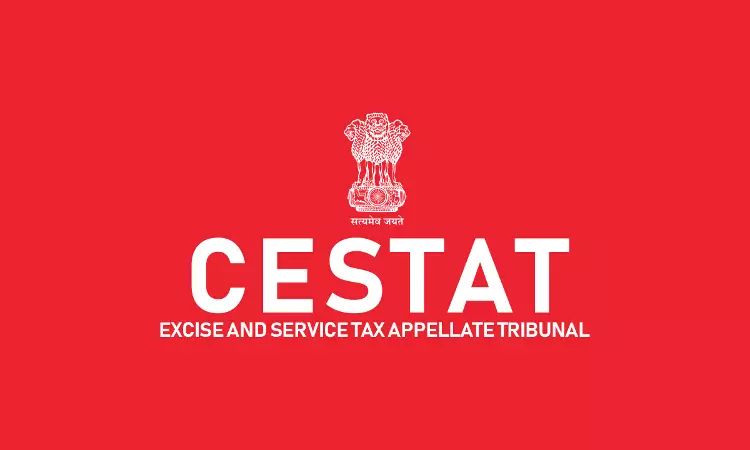Incorrect Declaration In Bill Of Entry Attracts Penalty U/S 114AA Of Customs Act: CESTAT
Mehak Dhiman
13 Oct 2025 10:59 AM IST
The New Delhi Bench of Customs, Excise, and Service Tax Appellate Tribunal (CESTAT) has stated that Justice Dilip Gupta (President) and P.V. Subba Rao (Technical Member) stated that imports and filing of the Bill of Entry are transactions of business under the Customs Act. Section 114AA would squarely apply to those transactions. In this case, the importer filed a Bill of Entry...
The New Delhi Bench of Customs, Excise, and Service Tax Appellate Tribunal (CESTAT) has stated that
Justice Dilip Gupta (President) and P.V. Subba Rao (Technical Member) stated that imports and filing of the Bill of Entry are transactions of business under the Customs Act. Section 114AA would squarely apply to those transactions.
In this case, the importer filed a Bill of Entry to clear goods imported by it and self-assessed the duty payable on them.
The department examined the goods and found some goods were found in excess, some goods were not declared, and the price of some goods appeared to be too low.
Investigation also showed that the importer had filed another Bill of Entry, self-assessing duty. When the goods were examined, discrepancies were found between what was declared and what was actually imported. The actual invoice of this consignment was also found in the Excel sheet provided by the appellant in respect of this Bill of Entry.
After completing the investigation, a Show Cause Notice was issued to the importer and to the appellant proposing to reject the declared transaction value and to redetermine the value as per the correct invoice values where they were available and based on contemporaneous imports where they were not available.
The appellant submitted that the Excel sheet on the basis of which the duty was recalculated was not admissible as evidence as per Section 65B of the Indian Evidence Act.
As per the appellant, only the values given in US$ $ in the invoices submitted to the Customs along with the Bills of Entry must be considered and not the values shown in RMB in the Excel sheet; that there was no mis-declaration of value of goods, and therefore, there can be no confiscation.
The revenue argued that the appellant also produced the EXCEL sheet giving the true values of the goods after downloading it from the appellant's email account. The Excel Statement must be presumed to be true as per section 139 of the Customs Act.
The Tribunal opined that the appellant had opened his email account and the Excel sheet, printed and signed a copy of the printout. Nothing in section 65B of the Evidence Act would apply to this Excel sheet because it was not taken out of any computer.
The bench, after looking into section 114AA, observed that it provides for making, signing or using or causing to be made, signed or used any declaration or statement which is incorrect in the transaction of any business for the purposes of the Customs Act.
Imports and filing of Bill of Entry are transactions of business under the Customs Act. Section 114AA would squarely apply to those transactions, added the Tribunal.
In view of the above, the Tribunal dismissed the appeal.
Case Title: Nitin Khandelwal v. Principal Commissioner, Customs
Case Number: CUSTOMS APPEAL NO. 50914 OF 2021
Counsel for Appellant/ Assessee: Shri Bharat Bhushan and Shri Pratik Kumar
Counsel for Respondent/ Department: Shri Nikhil Mohan Goyal and Shri Rakesh Kumar



